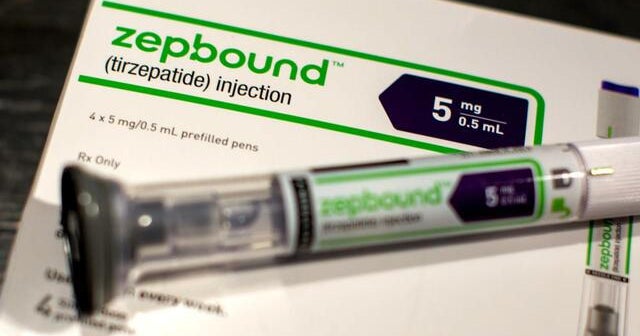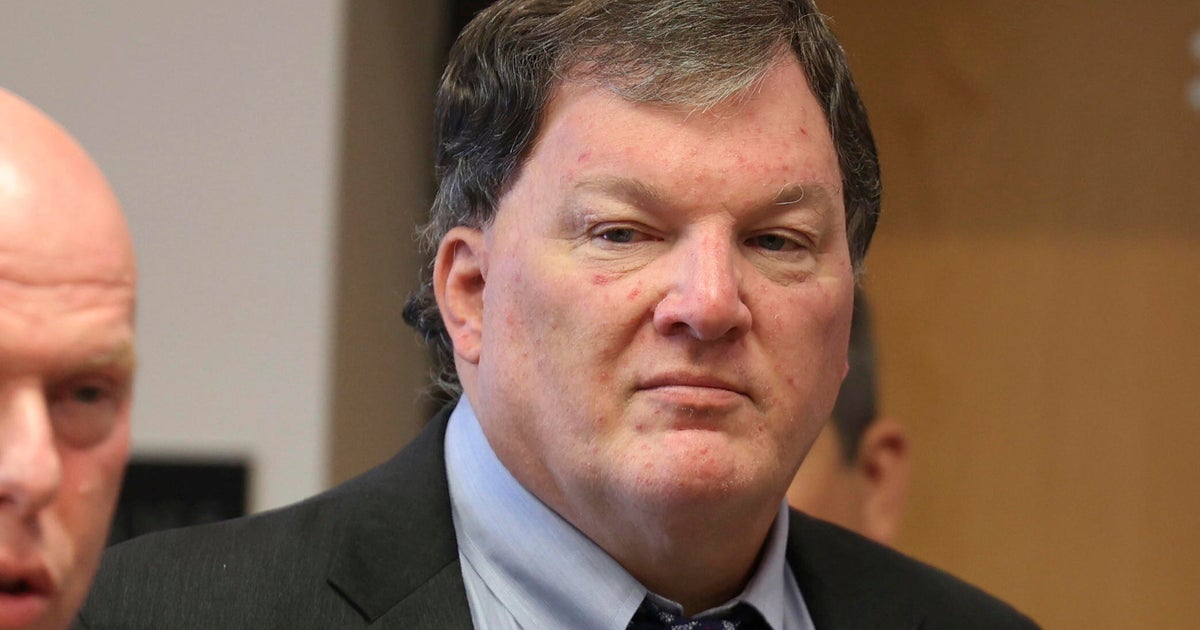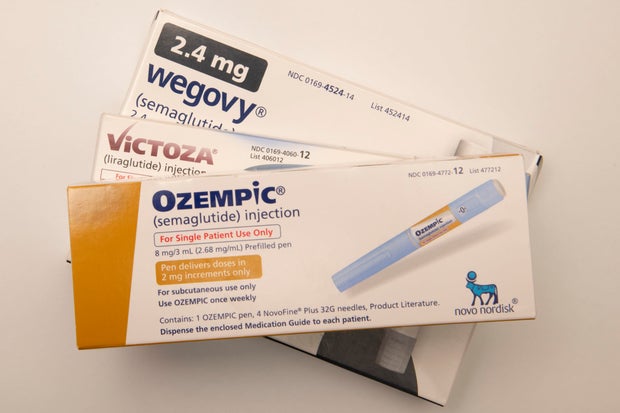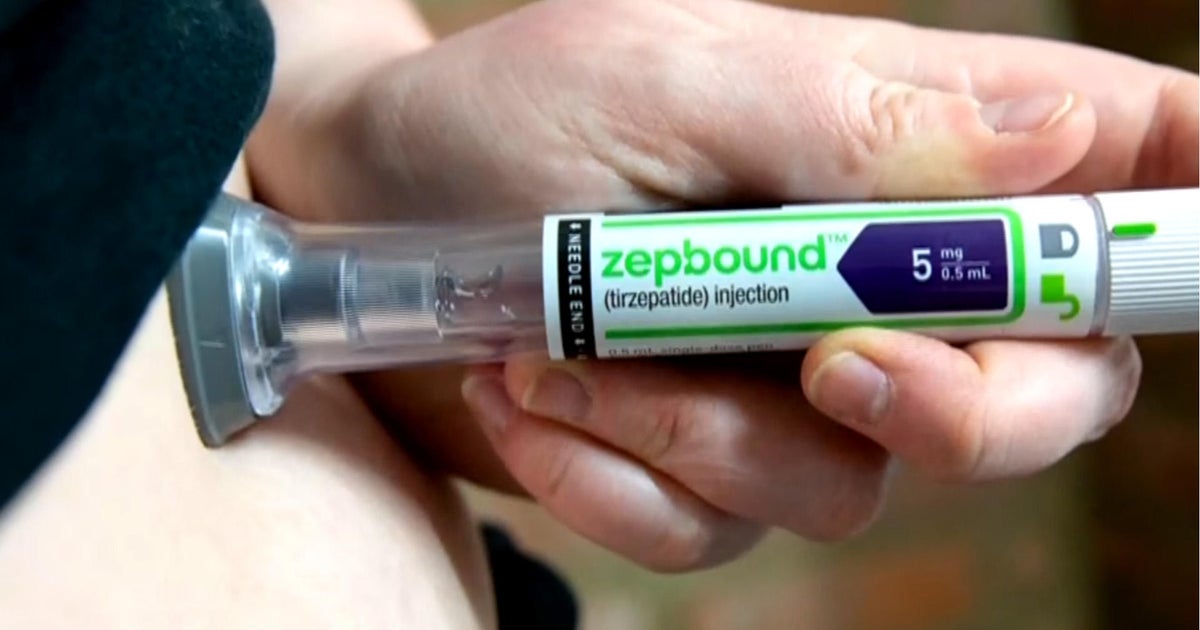CBS News
While brand-name weight loss drugs are in short supply, a market for alternatives thrives

Prescription weight loss drugs have become so popular in the United States that suppliers have struggled to keep up. Jean Readdy, a retired teacher living in Sinking Spring, Pennsylvania, is among the one in eight Americans who have tried a GLP-1 drug for weight loss or diabetes, more commonly known by brand names like Ozempic and Wegovy.
Readdy, who has struggled with her weight for most of her life, told CBS News her weight affected her self-esteem and how she moved through the world.
“I didn’t like going out places,” Readdy admitted.
She reached her highest weight last October, right as her son was about to be married.
“I was embarrassed for him and I was embarrassed for myself,” said Readdy.
Now, she’s one of a growing number of people turning to compounded drugs: reformulated versions the FDA has permitted pharmacies to distribute during an ongoing shortage of brand-name drugs.
Michael Siluk/UCG/Universal Images Group via Getty Images
Readdy’s decision to switch from a name brand to a compounded drug came down to price and availability. Paying $1,200 a month for the name-brand drug Zepbound wasn’t sustainable, and it was becoming impossible to find, she said.
And she’s not alone.
Readdy turned to online communities where thousands of people shared resources and where to find the drugs in short supply. On a Reddit forum, she read about the side effects, learned about alternatives, and eventually came across a spreadsheet with dozens of telehealth providers for prescription drugs used for weight loss. After weighing the risks and calling dozens of pharmacies, she eventually found one that provided her with injectable tirzepatide, the same active ingredient found in Zepbound. Readdy now pays $399 a month for her compounded medication.
CBS News identified more than 100 companies advertising access to tirzepatide or semaglutide, both active ingredients in name-brand GLP-1 drugs that regulate insulin and suppress appetite.
LegitScript, an organization that monitors and certifies online businesses, said it saw a 94% increase in companies applying for its healthcare certification since 2023. More than half of its recent applicants had a weight-loss focus on their website.
However, compounded drugs aren’t reviewed for efficacy and safety by the FDA.
“There is not a tremendous amount of oversight,” said CBS News medical contributor Dr. Celine Gounder. “There is a wide range in terms of the quality and the risks.”
Researchers who ordered and tested compounded semaglutide found some were contaminated and others contained more of the active ingredient than advertised.
Compounded drugs typically come with a needle and a vial, rather than a pre-filled pen, as the brand-name medications do. This can make them harder to administer and lead to potential dosing errors. The FDA issued warnings about administering the proper dosage of the drugs and the risks of using compounded semaglutide.
Still, many of the telehealth companies advertising compounded weight-loss drugs present them as the same as or “generic” versions of the brand-name medications. Nearly a quarter of the websites that CBS News identified did not disclose the drugs they were advertising were compounded.
There is no FDA-approved generic version of brand-name weight loss drugs since pharmaceutical companies still hold patents on the medications. Some of the companies falsely claimed the drugs were FDA-approved. A few even allowed direct purchases without the required prescription.
The FDA is working closely with drugmakers and may restrict the manufacturing of compounded drugs as more versions of approved drugs come off the shortage list.
Last month, Eli Lilly announced it would reduce the cost of the lowest dose of its drug Zepbound to around $400 a month. It also launched its own telehealth company, LillyDirect.
Readdy, who has lost more than 50 pounds, said she intends to continue using her compounded medication.
“We’re very afraid actually that the drug is gonna be taken away,” she said. “I think it’s a miracle drug.”
CBS News
Rex Heuermann, alleged Long Island serial killer, due in court as prosecutors promise major development

RIVERHEAD, N.Y. – Accused Gilgo Beach serial killer Rex Heuermann is due back in court on Long Island Tuesday morning, and prosecutors are promising a major development in the case.
The hearing is set to begin after 9:30 a.m. A press conference is expected at the Suffolk County DA’s office shortly after. We will bring that news conference to you live on CBS News New York.
The judge has previously indicated he wanted to set a trial date at today’s hearing.
Heuermann’s last court appearance was back in October.
Heuermann accused of killing 6 women, so far
Heuermann, 61, has pleaded not guilty to murder charges in the deaths of six women between 1993 and 2011. The remains of 11 people were discovered around Gilgo Beach during that period, and investigators believe Heuermann may be linked to other killings. The Suffolk County DA has said there could be future indictments.
Four of the victims had their bodies disposed of near Gilgo Beach. Two others were murdered as far back as 2003 and 1993. Each of them had been involved in sex work.
Prosecutors allege Heuermann is linked to the murders through DNA, burner phone data, a description of his truck, internet searches and what they call a blueprint for how to get away with murder.
Attorneys wrangle over DNA, volume of evidence
A key point of contention in the new DNA evidence is called SNP, which prosecutors say links the hairs of victims to Heuermann. The defense has called an outside lab’s methods of genetic testing unproven and “magic.”
Another hurdle for prosecutors is the sheer volume of evidence. The DA says they’re struggling to keep up with the costs of processing the 120 terabytes of data and 400 electronic devices seized.
Heuermann’s attorney says his client is looking forward to his day in court and will be pursuing a change of venue, claiming the jury pool in Suffolk has been “poisoned.”
Heuermann remains in isolation in jail.
CBS News
Osiel Cárdenas Guillén — notorious drug lord nicknamed “Friend Killer” — returned to Mexico after U.S. prison sentence

Notorious drug lord Osiel Cárdenas Guillén has been returned to Mexico after serving a U.S. sentence and was quickly re-arrested and sent to a maximum security prison to face Mexican charges.
There had been nervousness about the impending return of Cárdenas Guillén, who once led the feared Gulf cartel in northeastern Mexico before he was arrested and extradited to the United States in 2007.
The U.S. Homeland Security Department confirmed in its social media accounts Monday that Cárdenas Guillén had been returned after serving 14 years in U.S. custody, most of his 25-year U.S. prison sentence. He is a Mexican citizen, so presumably he was deported.
“The successful removal of Osiel Cardenas, a notorious international fugitive, underscores our unwavering commitment to public safety and justice,” said Enforcement and Removal Operations Chicago Field Office Director Samuel Olson in a statement.
A Mexican federal official who was not authorized to be quoted by name said Cárdenas Guillén had immediately been taken into custody in Mexico on drug, organized crime and money-laundering charges.
U.S. Immigration and Customs Enforcement/Handout via REUTERS
The official said Cárdenas Guillén was being held at the country’s top maximum-security Altiplano prison just west of Mexico City.
Homeland Security Investigations posted photos of a paunchy, balding, bespectacled Cárdenas Guillén being escorted by two officers in helmets and flak vests, and the being walked over a border bridge.
The image contrasts with the drug lord’s fearsome reputation for violence in Mexico.
Nicknamed “El Mata Amigos” (“Friend Killer”), he recruited former Mexican special forces soldiers to form his personal guard. The former head of the Gulf cartel was known for his brutality. He created the most bloodthirsty gang of hitmen Mexico has ever known, the Zetas, which routinely slaughtered migrants and innocent people.
The 57-year-old native of the border city of Matamoros, Mexico, moved tons of cocaine and made millions of dollars through the Gulf cartel, based in the border cities of Reynosa and Matamoros.
After his arrest in the northeast border state of Tamaulipas, he was extradited in 2007 to the United States, where he was sentenced in 2010 to 25 years in prison and ordered to pay $50 million.
At that time, the Justice Department alleged that Cardenas Guillen threatened to kill a Texas sheriff’s deputy who was working as an undercover ICE agent because he refused to deliver almost 1,000 kilograms of marijuana.
CBS News
The Electoral College votes to confirm results for the 2024 presidential election today. Here’s what to know.

At state capitols across the U.S. Tuesday, the presidential electors will be gathering to cast their electoral votes, formalizing President-elect Donald Trump’s victory over Vice President Kamala Harris in the 2024 election.
It’s largely a ceremonial vote, the next step after the presidential election. When Americans cast their ballots on Election Day, they’re technically voting for a slate electors committed to supporting their choice for president and vice president.
How does the Electoral College work?
The rules governing the Electoral College are outlined by the 12th Amendment.
Presidential electors, according to the amendment, “shall name in their ballots the person voted for as President, and in distinct ballots the person voted for as Vice-President, and they shall make distinct lists of all persons voted for as President, and of all persons voted for as Vice-President, and of the number of votes for each, which lists they shall sign and certify.”
The political parties choose the slate of electors ahead of the general election.
After Election Day, all the votes are counted and then certified by each state. According to the 2022 Electoral Count Reform Act, the deadline to certify the results is set at six days before the electors are scheduled to meet, traditionally on the first Tuesday after the second Wednesday in December.
The Electoral Count Reform Act of 2022 also requires that each state determine a state official — the governor unless specified otherwise — to be responsible for submitting the “certificate of ascertainment” that identifies the state’s electors and includes a security feature.
What were the 2024 Electoral College results?
Trump won 312 Electoral College votes to Harris’ 226. See state-by-state results here and below.
Nationally, Trump also won the popular vote, winning 77.2 million votes to Harris’ 75 million.
How many electoral votes does each state have?
The Electoral College consists of 538 electors, and a majority of 270 is needed to become president.
Each state’s electoral votes are equal to the number of representatives they have in the House, plus two senators.

While the number of Electoral College votes has remained at 538 since 1964, the number of votes per state changes to match congressional apportionment after the decennial census. Between the 2020 election and the 2024 election, Texas gained two Electoral College votes, while five other states — Colorado, Florida, Montana, North Carolina and Oregon — gained one electoral vote each. Six states lost an electoral vote: California, Illinois, Ohio, Michigan, New York, Pennsylvania and West Virginia.
The map below shows the changes by state between the 2020 election and the 2024 election.

Does each elector have to vote with the state election results?
Forty-eight states and Washington, D.C., are winner-take-all, so the winner of the popular vote in the state wins all of the state’s electoral votes. Maine and Nebraska allocate their electors based on the winner of the popular vote within each Congressional District and then two “at-large” electors are determined based on winner of the statewide popular vote.
The electors are supposed to vote in accordance with the outcome of the popular vote in their state. The Constitution does not require electors to vote with the winner of the popular vote, but most states have laws that nullify the votes of “faithless electors.” The Supreme Court ruled in 2020 that states can punish these “faithless electors.”
According to FairVote, there have been 90 “deviant” votes cast by electors for president since the founding of the Electoral College, although the majority of these were due to the death of a party’s nominee rather than a true deviation from the voters’ intent.
There have also been 75 faithless electors for vice president, for a total of 165 faithless electors throughout history, according to FairVote.
After the 2020 election, so-called “fake” Republican electors in seven battleground states won by President Biden met anyway and cast phony votes for Trump. State criminal charges have been filed against fake electors in Georgia, Michigan and Nevada. In charging Trump for attempting the overturn the election results, special counsel Jack Smith said these fake electors were part of a plan to overturn the election, orchestrated by pro-Trump attorneys with Trump’s support. Those charges have been dismissed since Trump’s victory in the 2024 election.
What’s next after the Electoral College certification?
After the results are signed and certified, they are sent to Harris, acting as the president of the Senate. The vote certificates must be received by the fourth Wednesday in December, which this year is Dec. 25. The archivist then transmits the sets of certificates to Congress on or before the new Congress meets on Jan. 3, 2025.
On Jan. 6, 2025, Congress meets in a joint session to count the Electoral College votes, overseen by Harris. After the votes are counted, the vice president announces the winner of the election.
Trump and Vice President-elect JD Vance will take the oath of office at the inauguration at noon on Jan. 20, 2025.










